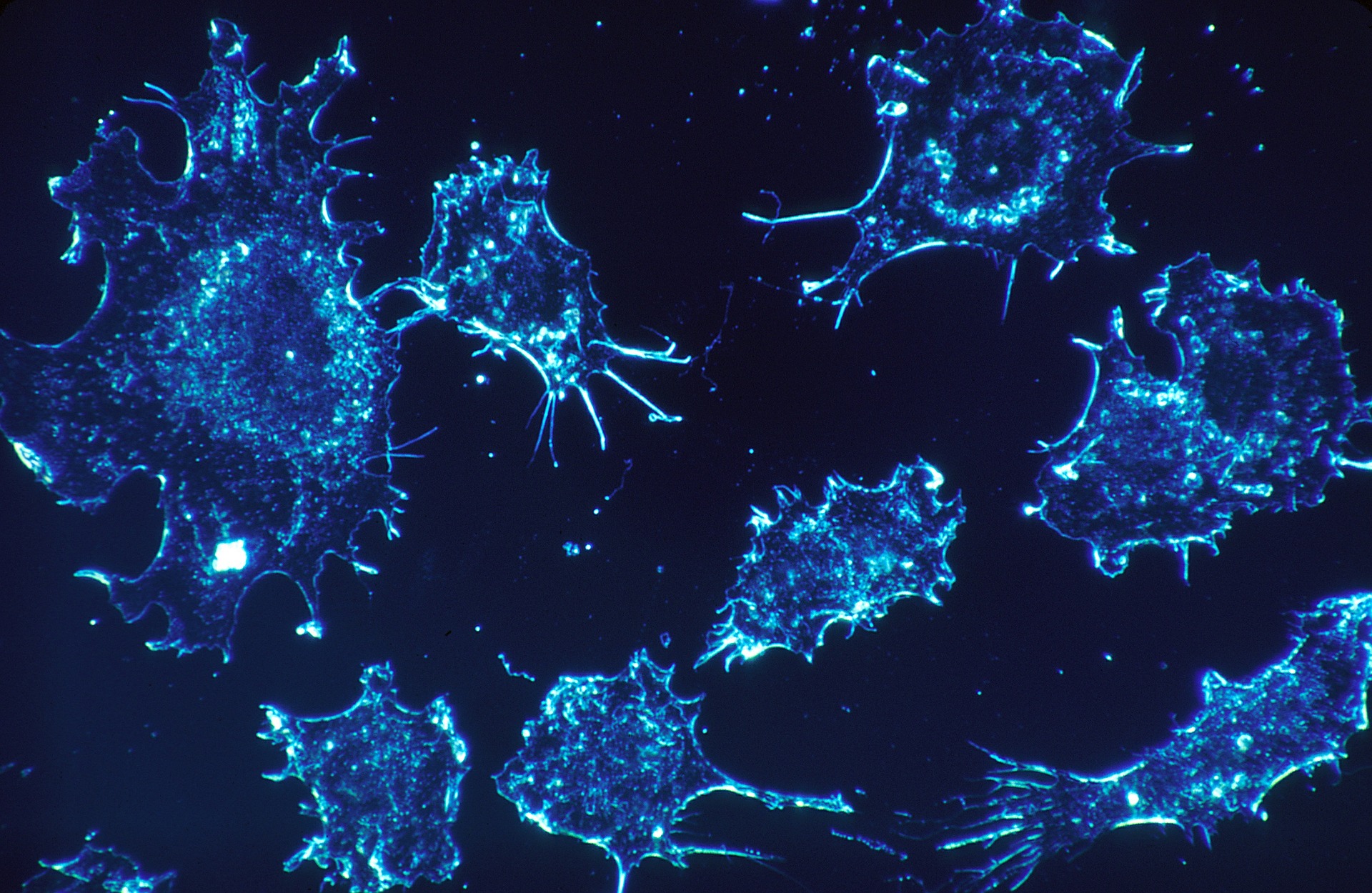 Health & Physiology
Health & Physiology
Empowering the immune system to fight against cancer
By targeting the machines that control the quality of DNA, we generated a high number of “warning lights” that make cancer detectable by the immune system.

It is well known that to grow and invade different organs, tumours must find ways to evade several layers of controls that are in place in our body. The immune system, a complex network of cells and antibodies has been shaped by evolution to protect us, not only against virus and bacterial infections but also against cancer. To continue to grow, tumours continuously evolve, altering the mechanisms that allow the immune system to detect the tumour or by blocking specific players of the immune system. Any therapeutic approach that aims to spark cancer immunity - also called immunotherapy - is therefore potentially relevant for increasing the survival rate of cancer patients.
DNA is the "user manual" of our life that contains essential information for every single cell of our body. To "protect" this information, a complex proof-reading machinery, called mismatch repair (MMR) exists and works by checking the DNA sequence and repairing any mistakes. We have tested the hypothesis that inactivation of MMR could be exploited to render cancer more prone to the immune-mediated control. Notably, as a result of inactivating the MMR, tumours randomly acquire a repertoire of "errors" in the text of the manual, and, as a consequence, these alterations are present at the protein level (the final product described in the manual). Similar to when a person is preparing a document and notices typos after re-reading the text. The author will proceed in two steps: first, identification of the error and then the correction of what is considered to be wrong. The same is for the immune system that recognizes "the errors" as new elements and then invaders to be removed from the body.
Most notably, in a sub-group of colorectal cancer patients, called microsatellite instable (MSI), altered MMR machinery is present and causes the production of incorrect signals that promote tumour initiation and growth. The immune system perceives these proteins, derived from incorrect DNA code, as a potential enemy, but the tumour maintains the ability to block the immune activation. Interestingly, in MSI patients' immunotherapy has a remarkably long-lasting response; this is likely due to the density of tumour infiltrating immune cells that are able to detect the large spectrum of mutations in MMR deficient patients.
We started this project to better characterize the results observed in the clinics. To elucidate the role of MMR in tumorigenesis and in the response to immunotherapy, we used cell lines derived from tumours explanted from mice. These cells may grow when re-implanted in another mouse, recapitulating the original histology of tumours. We manipulated the DNA of these cells in our laboratory by deleting an MMR gene, (Mlh1), and comparing the features of the Mlh1 loss cells with the original populations (unmodified). Both cells grew at similar rates and rapidly formed tumours in mice without a functional immune system (immune-compromised mice), while only MMR-proficient cells formed tumours in immune-competent mice. The message is that two elements can restore immune control: (a) many alterations in cancer that increase the production of new "signals", and (b) a responsive immune system that is able to identify these signals and recognize the tumour as a pathogen.
Consistent with these findings, we transiently inactivated part of the immune system from mice, observing that MMR-deficient cells formed tumours, supporting the hypothesis that the altered cells are under immune control. The analysis of the DNA in the tumour cells revealed that the number of alterations that lead to abnormal proteins, increased over time in MMR-deficient, but not in the control counterpart. The production of these proteins leads to immune detection of the tumour; further demonstrating that growth of MMR-deficient tumours is controlled by the immune system.
Overall, these findings show that by inhibiting the DNA mismatch repair system, it is possible to promote a durable immune surveillance of cancer. The approach established a simple, yet paradoxical, principle: inhibition of the tumours' DNA damage mismatch repair machinery can be exploited to continuously stimulate the creation of altered proteins in tumours. Consequently, the immune system, in combination with therapy that refreshes its responsiveness, may be educated to recognize the alterations accumulated in cancer cells and hijack its development.
Original Article:
G. Germano et al., Inactivation of DNA repair triggers neoantigen generation and impairs tumour growth. Nature 552, 116-120 (2017)Edited by:
Massimo Caine , Founder and Director
We thought you might like
SERINC5: a blood cell guardian against HIV
May 13, 2016 in Health & Physiology | 3.5 min read by Massimo PizzatoCold adaptation: gut bacteria can make the difference
Sep 7, 2016 in Microbiology | 3 min read by Daniele GuidoSleeping bacteria survive antibiotic treatment and hijack the host immune system
May 6, 2019 in Microbiology | 3.5 min read by Daphne Stapels , Peter HillShuttle service for metastatic cancer cells
Aug 7, 2019 in Health & Physiology | 3 min read by Barbara M. Szczerba , Nicola AcetoMore from Health & Physiology
Tobacco smoking and other exposures shut off cancer-fighting genes
Aug 31, 2024 in Health & Physiology | 3 min read by Jüri Reimand , Nina AdlerA hidden clock that times cytoplasmic divisions
Aug 30, 2024 in Health & Physiology | 3 min read by Cindy OwWhen two kinases go for a dance
Aug 2, 2024 in Health & Physiology | 4 min read by Ioannis Galdadas , Francesco Luigi Gervasio , Pauline JuyouxAwakening the thymus to cure SARS-CoV-2 infection: a matter of genes
Jul 27, 2024 in Health & Physiology | 3.5 min read by Stefano Marullo , Cheynier RemiKeeping the balance: How epigenetics monitors cancer genes
May 13, 2024 in Health & Physiology | 4 min read by Zach Gray , Madison Honer , Johnathan WhetstineEditor's picks
Trending now
Popular topics


